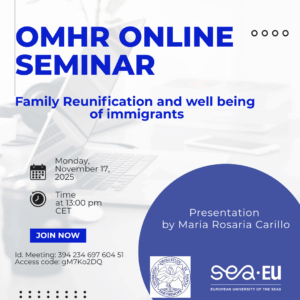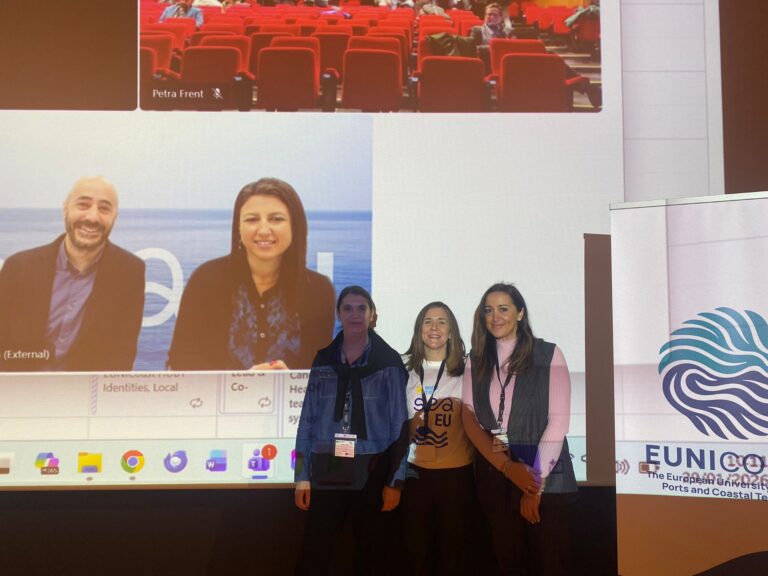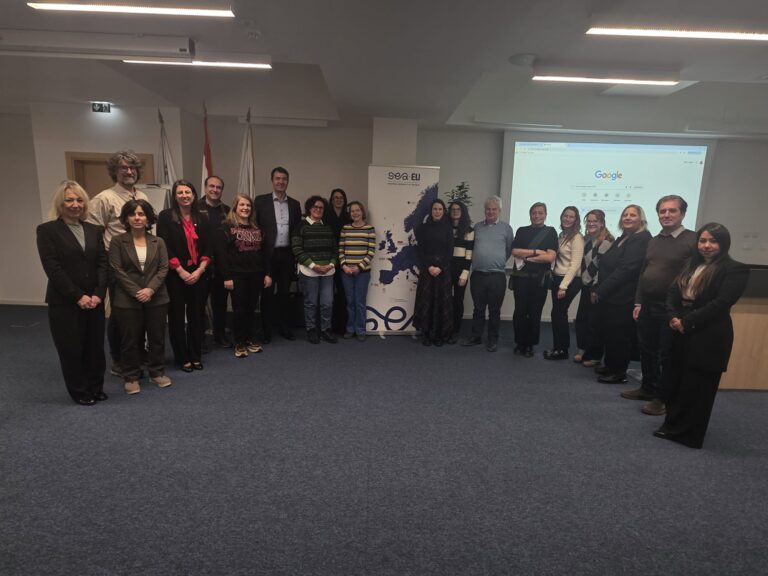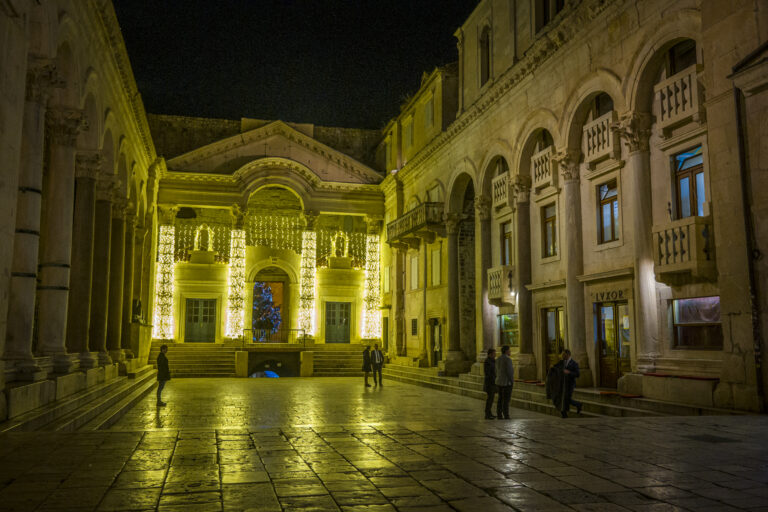The Observatory of Migration and Human Rights held an online seminar on Monday, 17 November, focusing on one of the most pressing and human dimensions of contemporary migration: family reunification and its impact on the well-being of immigrants. The session, titled “Family Reunification and Well-Being of Immigrants”, featured the contribution of María Rosaria Carillo, University of Parthenope (Naples), and brought together students, researchers, and professionals from various fields engaged in migration studies.
Family reunification is widely recognized as a central theme in understanding the migration experience. The seminar approached this topic from a broad perspective, placing emphasis on how family presence can profoundly shape migrants’ emotional stability, integration processes, and overall quality of life in their host societies.
The event revisited a fundamental principle in migration and human rights research: migration rarely happens in isolation. For many individuals, it is a collective, family-driven strategy marked by hopes, sacrifices, and lengthy periods of uncertainty. Although many migrants expect eventually to reunite with their loved ones, reality often imposes long bureaucratic procedures, strict requirements, and unpredictable delays.
These barriers can deeply affect the social and psychological well-being of migrants as they navigate life in a new country.
By situating family reunification within a human rights framework, the Observatory of Migration and Human Rights underscored the importance of protecting the right to family life, a principle embedded in international and European legal standards.
From a policy perspective, it was emphasized the need to reflect on the variety of family reunification frameworks implemented across countries. Legal requirements differ widely, including income thresholds, acceptable documentation, waiting times and definitions of family members eligible for reunification. These differences can drastically shape the migrant experience, affecting how quickly or slowly families can regain unity.
By organizing this seminar, the Observatory of Migration and Human Rights, with the collaboration of the University of Parthenope, reinforced its commitment to fostering knowledge, dialogue, and interdisciplinary reflection on migration.




